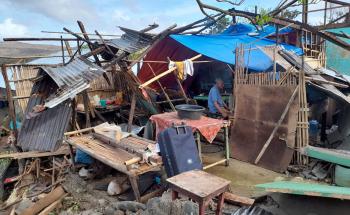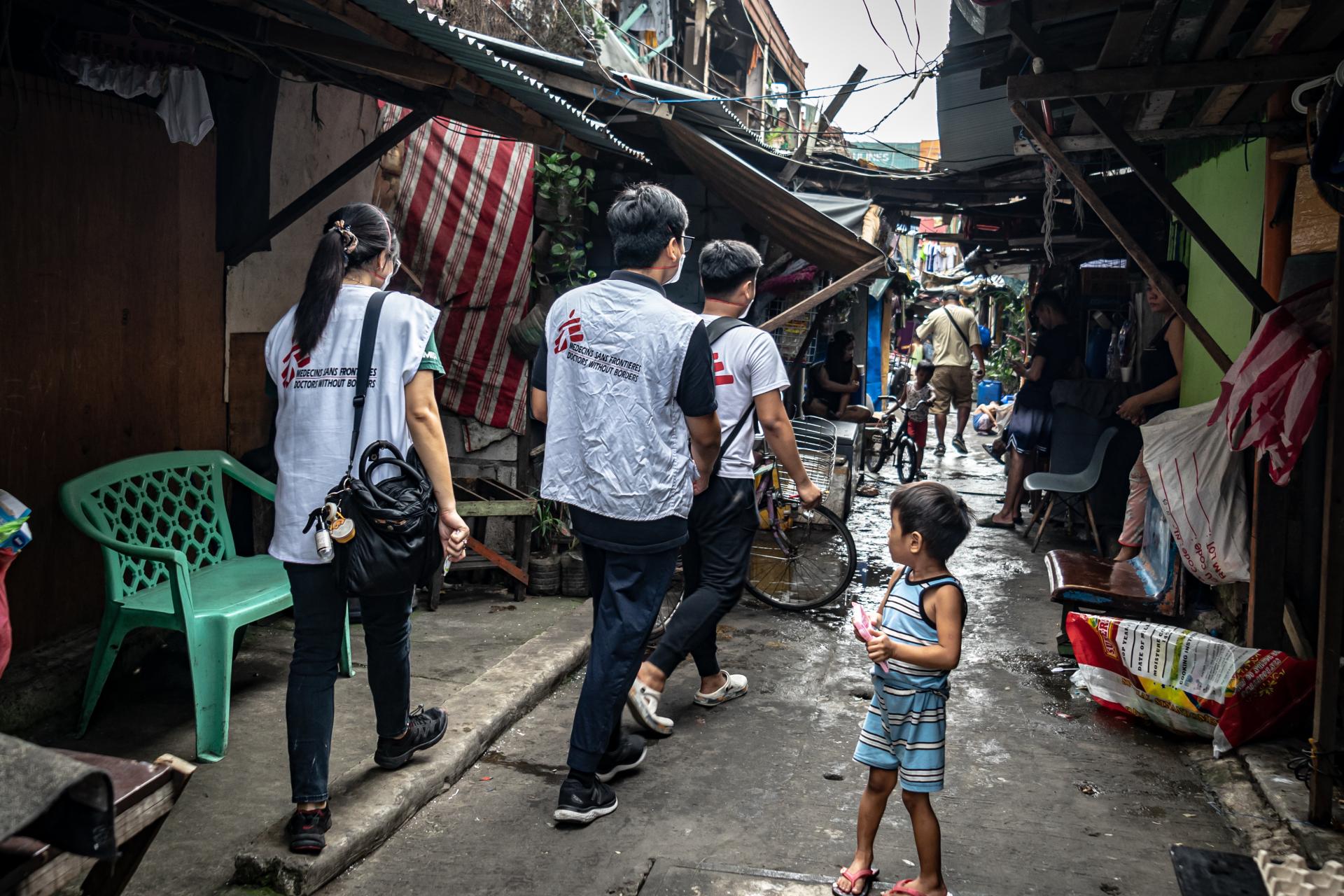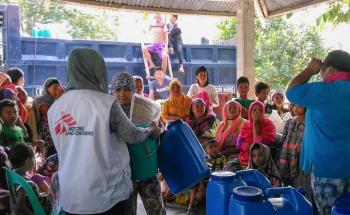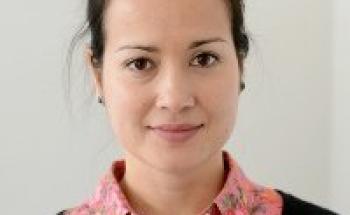

Philippines
Throughout 2024, Doctors Without Borders (MSF) worked in Tondo, a densely populated, impoverished area of the capital, Manila, focusing on active case detection.
Our teams ran a mobile x-ray clinic equipped with an artificial intelligence-assisted diagnostic tool, facilitating rapid screening and early diagnosis. The aim was to screen people, trace contact cases, and refer TB-positive patients to local health centres.
Our Activities in Philippines in 2024
Data and information from the International Activity Report 2024.
54
54
€1.6 M
1.6M
1984
1984

To improve treatment, patient adherence and outcomes, MSF organised community-based care, including home visits and follow-up. We also offered preventive TB treatment to close contacts of confirmed TB patients, especially children, who are at higher risk of developing severe forms of the disease.
Some patients diagnosed through our screening activities were unable to start or continue treatment, due to recurrent drug shortages or their inability to afford them. In August, to address this issue, MSF supported the Manila Health Department with a donation of TB drugs, while advocating for a sustainable procurement of medicines.
During the year, our teams also launched several emergency responses. On 14 September, a massive fire broke out in Manila, affecting over 2,000 families. Many people lost their homes and their personal belongings. In response, MSF donated medicines, supplies for wound care, such as bandages and antiseptic products, and oral rehydration salts.
The Philippines has long been recognised as one of the countries most at risk for extreme weather events. However, the 2024 storm season proved to be record-breaking, with six typhoons hitting the country within a 30-day period, starting in late October. In the aftermath of severe tropical storm Trami and super typhoon Man-yi, our teams quickly reached the worst-affected districts, to offer basic healthcare, distribute essential supplies, such as drinking water and hygiene kits, and monitor the risk of water-borne diseases.
IN 2024


